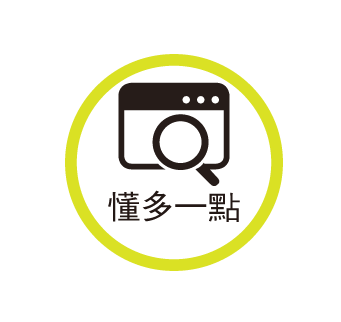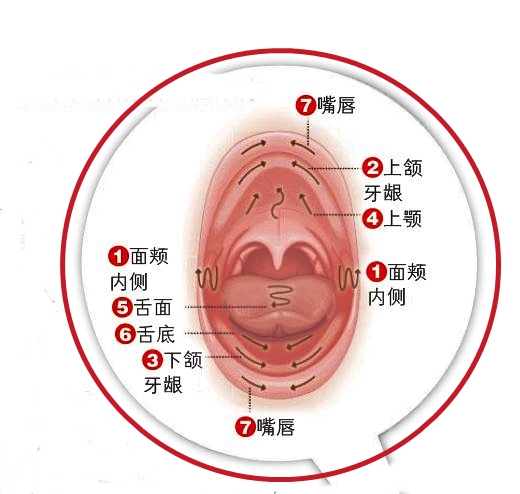[Wan Qingyi Care]Foreign objects strayed into the trachea and the elderly with high bacterial content Oral hygiene to prevent aspiration pneumonia
[ad_1]
Text: Feng Chengjun (speech therapist in nursing home), “Ming Pao”
(Hong Kong News) To deconstruct aspiration pneumonia, we must first understand the three tasks that the mouth to throat area is responsible for: breathing, chewing and swallowing.
Among the three, breathing and chewing can be carried out simultaneously,
But you must hold your breath while swallowing,
Breathe only after swallowing.
Precise coordination between the two is required
(breathing-swallowing coordination).
If any incoordination or delay occurs in the process,
Both may cause dysphagia.
Bacteria follow saliva into lungs
When food enters the throat, the vocal cords of the larynx will close, and the epiglottis cartilage will also cover the entrance of the trachea downward to prevent food from falling into the airway. Generally, dolls have “food entering the airway”, that is, food accidentally falls into the airway; under normal circumstances, foreign objects strayed into the trachea will trigger cough reflex, which is used to remove foreign objects to protect the lungs. Therefore, simply “food entering the respiratory tract” may not necessarily lead to aspiration pneumonia, and two other factors need to be considered.
1. Poor cough reflex
The cough reflex is the first barrier of the lower respiratory tract defense mechanism. Some elderly people have decreased cough reflex sensitivity due to diseases such as stroke, or the cough reflex function has deteriorated due to long-term bed rest, so that they cannot remove residual foreign substances in the lower respiratory tract. In addition, the elderly generally have relatively weak resistance, which will increase the risk of aspiration pneumonia.
2. Bacteria enter the lungs with saliva and food
Elderly people suffering from stroke, cognitive impairment and other diseases have reduced oral sensitivity and oral muscle activity, resulting in the accumulation of food residues in the mouth after eating; in addition, the elderly who use nasogastric tube (nasogastric tube) to feed due to lack of oral stimulation for a long time, Saliva may build up in the mouth.
Regardless of whether the elderly eat by mouth or use a nasogastric tube, if oral care is insufficient, a large number of bacteria will grow and form dental plaque, leading to tooth decay and periodontal disease. When the elderly unfortunately “food enters the respiratory tract”, a large number of bacteria in the mouth will enter the lungs along with saliva and food, which significantly increases the risk of aspiration pneumonia.
In summary, there are 3 main causes of aspiration pneumonia (see figure):
1. Foreign objects are often strayed into the trachea
2. Impaired lower airway defense mechanisms
3. Foreign objects strayed into the trachea contain high bacterial content
Mouth muscle training improves swallowing ability
For foreign objects that often stray into the trachea, proper oral muscle and swallowing rehabilitation training can improve swallowing ability and reduce the frequency of “food bodies entering the respiratory tract”. In response to the damage of the lower respiratory tract defense mechanism, moderate exercise to maintain lung function and ensure adequate and balanced nutrition intake can help improve the lower respiratory tract defense mechanism and enhance resistance.
In view of the high bacterial content of foreign objects strayed into the trachea, maintaining good oral hygiene is the most direct and effective way to reduce the oral bacterial content.


Chopsticks, towels, and gauze help the elderly clean their mouths
Establishing good oral hygiene habits, including daily cleaning of teeth and dentures, together with regular annual dental checkups, is the best way to keep gums and teeth healthy.
According to the recommendations, brush your teeth with fluoride toothpaste every day and before going to bed at night, and use an interdental brush or floss to remove dental plaque on the surface and adjacent surfaces of the teeth to help prevent tooth decay. If you use a denture tray, it must be removed and cleaned every night before going to bed.
If the denture tray worn for a long time is not clean, it may lead to denture stomatitis, that is, pain, redness, swelling, and ulceration at the contact point between the oral mucosa and the denture tray.
Easier to control with an electric toothbrush
For the elderly with inflexible hand muscles such as dementia, stroke, Parkinson’s disease, etc., if they can still brush their teeth by themselves, they should be encouraged to try their best to do it by themselves or provide assistance as needed, such as tying a towel to the toothbrush handle to make it thicker, Make it easier for them to hold the toothbrush to improve control, or consider switching to an electric toothbrush, which requires less brushing skills.
For the elderly who cannot clean their mouths by themselves, they are divided into 3 groups according to the degree of assistance they need.
Sober, cooperative, teeth
Caregivers should clean their teeth every morning and evening. Using toothpaste containing fluoride can effectively prevent tooth decay, and the dosage of toothpaste (the standard is the size of a green pea) can be adjusted according to the number of teeth. However, caregivers may be worried that the elderly will accidentally swallow toothpaste while brushing their teeth. In fact, swallowing a piece of toothpaste the size of a green pea will not cause harm to the body.
1. Sober and cooperative, but toothless
The caregiver should wipe their mouths once every night, clamp a piece of gauze with pliers that can lock objects, moisten the gauze with boiling water, squeeze out the excess water, put it into their mouths, and follow the following order (see picture): Cheek Inside → maxillary gingiva → mandibular gingiva → palate → tongue surface → tongue bottom → lips, clean each position twice, and replace clean gauze each time.
2. Unconscious, unable to cooperate, have difficulty swallowing
◆If they have teeth, caregivers need to brush their teeth and use interdental brushes or dental floss to clean the surface and adjacent surfaces of the teeth, but do not use toothpaste, so as not to get the toothpaste into the trachea; if they do not have teeth, use wet gauze every night They wipe their mouth once.
◆When assisting the elderly to take care of their mouth and clean their teeth, they may bite the sanitary ware. Caregivers can use auxiliary tools that are thick and not easy to break, such as rolling up a few chopsticks with a towel and letting them bite with one side of their teeth. This holds the mouth open and gives the caregiver enough room to clean the other tooth.
◆Because they cannot rinse their mouths, they should wipe their mouths clean after completing all oral care procedures. If necessary, they can use cotton swabs to apply glycerine to the elderly with dry lips.

[ad_2]
Source link

![[Love Wants Sexual Happiness Series 358]Find the culprit and overcome psychogenic erectile dysfunction. Don’t let pressure affect your sexual happiness.](https://chinathenews.com/wp-content/uploads/2024/04/171111-780x420.jpg)

![[Wanqingyi Care]My health, my rights, customized medical methods in the last stage of life](https://chinathenews.com/wp-content/uploads/2024/04/ZZ1-100-780x420.jpg)
![[Kidney Transplantation Special Topic]The survival rate of transplanted kidneys is high without dialysis treatment three times a week](https://chinathenews.com/wp-content/uploads/2024/04/1311-780x420.jpg)



